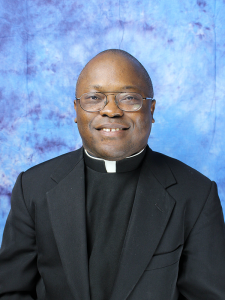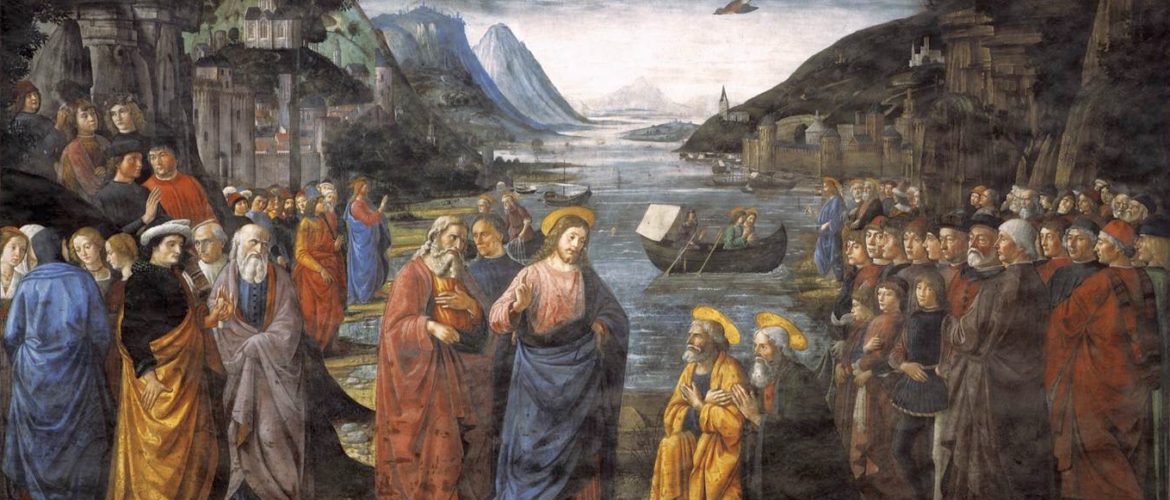By: Fr. Deogratias Ekisa
From the beginning of Christianity, the Church’s relationship with secular rulers has included both cooperation and opposition and everything in between. But the recent election of President Trump has brought this question to the fore, especially among Catholics who call themselves conservatives or are indeed conservative leaning. Many of them are genuinely are wondering why Catholic bishops and priests are not embracing the president en masse, and why on the contrary some are disapproving of a few of his actions and policies. Why would the Church oppose someone who opposes abortion or at least appears to do so?
I submit that there are three broad approaches to criticizing the president (and political leaders in general), two of which Catholics, depending on their state in the Church, can legitimately adopt.
NO . . .
The wrong way to criticize the president is to do it in the manner of DIRTY POLITICS. Basic principles of Christian charity and civility preclude ad hominem attacks on the person of the president or that of his family. In addition principles of justice, fairness and truth exclude the use of fallacious arguments in debating or disagreeing with any interlocutor including the president. I find the Four-way Test of the Rotary club a good summary of the Christian way of disagreeing without being disagreeable:
1. Is it the truth?
2. Is it fair to all concerned?
3. Will it build goodwill and better friendships?
4. Will it be beneficial to all concerned?
Any criticism that ignores these principles is just wrong and no Christian worth the name should engage in it.
YES . . .
On the other hand, the Christian way to debate politics observes the above mentioned principles and takes two forms:
1. Partisan politics (open only to lay Catholics)
2. Politics in general (open to laity and Clergy).
1) Lay Catholics can and should legitimately be involved in PARTISAN POLITICS. Save for one-party states, the management of most democracies could be described as being partisan politics. Two or more parties propose different visions of how to manage the polis (state). In the USA, the principal visions are provided by the Democratic and Republican parties, which are broadly inspired by liberal and conservative ideologies. While the Church as a body does not endorse any one party or ideology, individual non-clergy members of the Church are free to belong to any of these parties, stand for office sponsored by them or even promote those ideologies and parties. Hopefully they rely on a well-formed conscience to make those decisions. That is why it should not come as a surprise that individual Catholics who are Democrats will oppose some of the decisions and policies of President Trump, just as individual Catholics who are Republicans did the same to President Obama. As long as these disagreements are not done in the manner of dirty politics but rather through civil discourse, these are legitimate ways of deciding what is good for society.
But the Church as a body and its leaders, the bishops, priests and deacons do not engage in partisan politics. They don’t endorse parties or candidates or political platforms. I would bet that if Mother Teresa were to run for president, even she would not get an endorsement from the Church and its leaders. This is because partisan politics is by its very nature contingent and conditional on circumstances. Good Catholics, for example, could disagree on specific policies and actions, such as what is the best way to tackle the immigration problem. Also, it is inherent in the nature of partisan politics, that the platform of each side will more or less be consistent with Catholic teaching. No one party embraces the full gamut of Catholic teaching on social justice. And so, it would be an abdication of its prophetic duty to uphold the full truth, if the Church endorsed one side that represented only part of the truth. This self-censorship by the Church is not due to any tax laws, since even bishops in countries without tax benefits for Churches still uphold nonpartisanship in politics. The Church has to be a mother to all, rather than a hero to some.
2) The Church as a body and its leaders, however, can legitimately get involved in NON-PARTISAN POLITICS, that is by speaking to general moral principles in the management of society. The bishops do this in the course of their normal teaching, drawing from the biblical principles of the Ten Commandments and the Beatitudes, as well as Church teaching such as the Works of Mercy. Occasionally they may also speak out when the legislative or executive arms of government enact particular laws or policies, supporting those that uphold the aforementioned moral principles and criticizing those that don’t. That, for example, explains the recent response of US bishops who were happy with the president’s actions on the defunding of abortion, but not with the actions that seemed to unfairly deal with immigrants and refugees, especially those of the Islamic faith. That the president ticked one box of Catholic Social Teaching does not give him a pass on the rest of that teaching.
BUILDING THE KINGDOM OF GOD
And so, should Catholics criticize the president?
a. Lay Catholics can certainly do so by engaging in both partisan politics and politics as such. As long they don’t engage in dirty politics, it is their right and responsibility to call out the president, when in conscience they think he is doing wrong. It is also their right and responsibility to support him when his actions are in line with the gospel, regardless of how they voted.
b. Catholic leaders, the bishops, priests and deacons can also criticize the president. Their role, however, is limited to politics as such, general moral principles, not partisan politics. There have been times in the past, when Church has lost its prophetic voice, by going to bed with secular leaders, even the relatively good ones. That is a mistake it should not repeat.
Society is the poorer when both individual Church members and its leaders disengage from appropriate engagement in the public square. Moreover, the Kingdom of God that the Church exists to build is this world, not some other world. The Church must bring the gospel in its fullness to bear on the management of the POLIS.
About the Author: Fr. Deogratias Ekisa

B. Phil (Makerere University – Kampala), M.Div (Notre Dame Seminary),
S.T.L. (Sant’Anselmo – Rome), S.T.D. (Sant’Anselmo – Rome).
A priest of the Archdiocese of Tororo – Uganda, Fr. Deo was ordained in 1998 after his seminary studies at Notre Dame Seminary.
He then served for seven years as Secretary to his bishop and Chancellor of the diocese. During that time he also served for four years as Vocations director and Master of Ceremonies of the diocese and three years as Pastor of Queen of Peace Parish in Kachongha.
After his studies in Sacramental Theology in Rome, Fr. Deo began serving on the faculty of NDS in 2009. At NDS Fr. Deo serves as the Vice-Rector, Director of Human Formation, a Professor of Sacramental Theology and Liturgy and a Formation Adviser. He is also the Director of Seminarians for the Tororo seminarians studying at NDS.
In addition to his training and experience as a priest and formation advisor, Fr. Deo hopes to bring to Notre Dame Seminary the experience of the African Church and culture. In addition to several native Ugandan languages, he speaks English and Italian.
Website: http://fatherdeo.blogspot.com
Disclaimer
All opinions published by the authors on this blog are solely those of the authors. Although the goal is that they should, they do not necessarily express the views and opinions of the Archdiocese of New Orleans, Notre Dame Seminary, the Church, or their respective dioceses and bishops.
Notre Dame Seminary and the Archdiocese of New Orleans are not responsible for the comments of commenters, although every effort will be made to remove offensive comments.
If you should find an error or offensive content, please email the NDS Blog editorial team.

